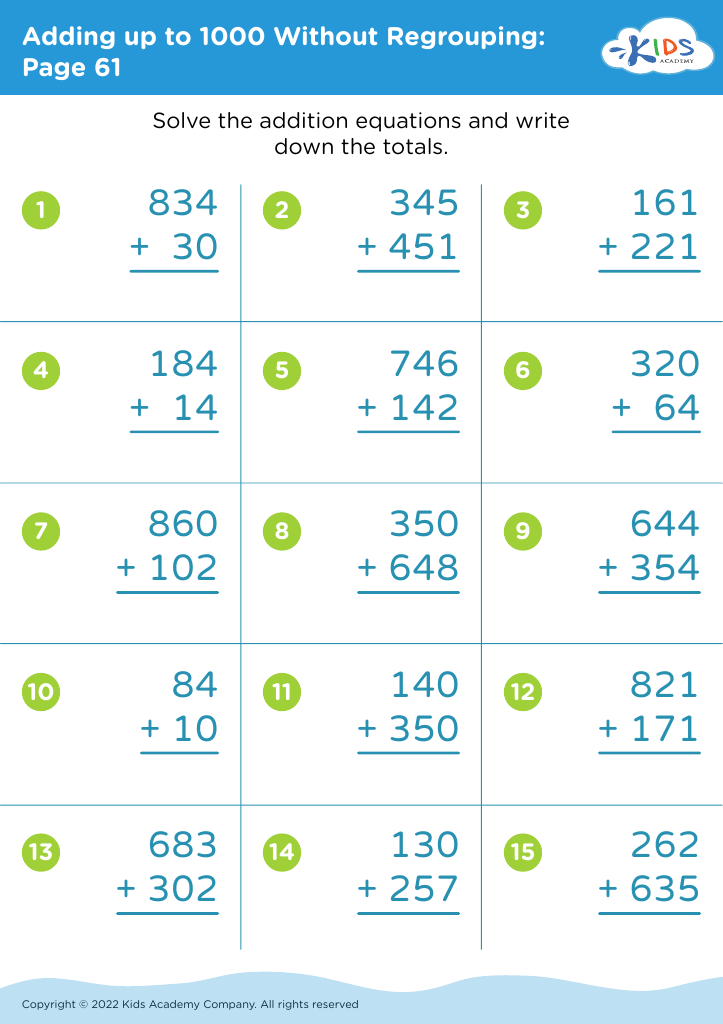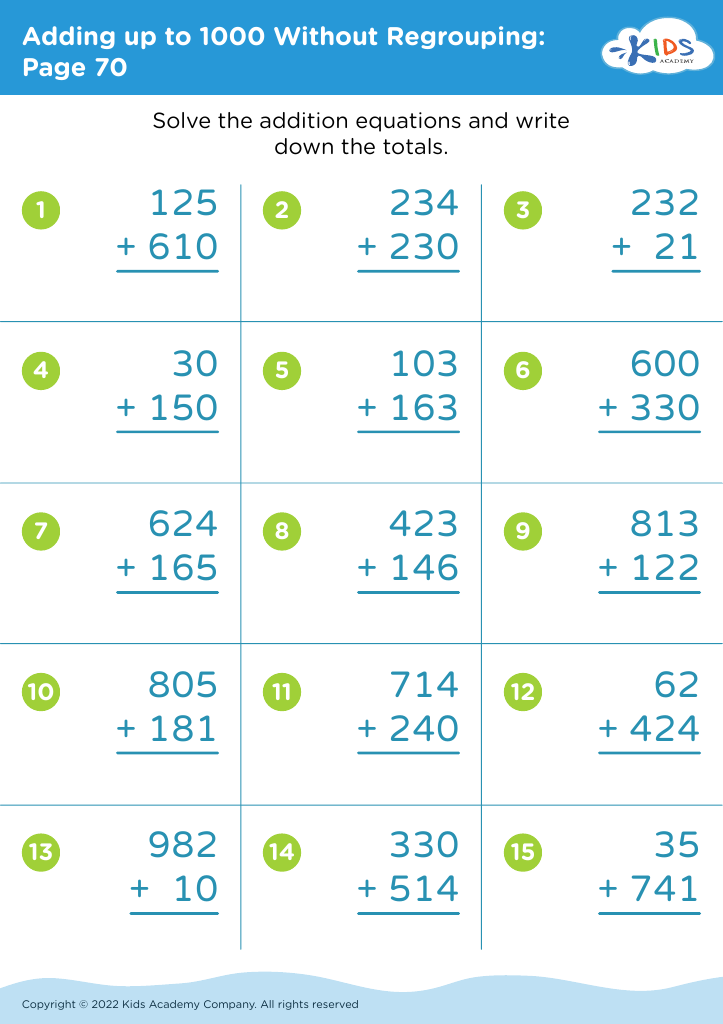Basic Addition Adding up to 1000 Without Regrouping Worksheets for 8-Year-Olds
4 filtered results
-
From - To
Discover our engaging "Basic Addition Adding up to 1000 Without Regrouping Worksheets" designed specifically for 8-year-olds. These worksheets provide a fun and interactive way for young learners to strengthen their addition skills, focusing on sums that do not require regrouping. Each worksheet is tailored to ensure clarity and relevance, promoting confidence in math fundamentals. Ideal for home or classroom use, these resources help build a solid foundation in arithmetic, equipping children with the skills needed for more advanced math concepts in the future. Boost your child's numeracy with our well-structured and easy-to-follow addition worksheets today!
Basic addition, particularly the ability to add numbers up to 1000 without regrouping, is a vital skill for 8-year-olds that serves as a foundational element in their mathematical education. Parents and teachers should prioritize this skill because it forms the basis for more complex mathematical concepts, such as subtraction, multiplication, and division. Mastery of basic addition fosters number sense and confidence in children, enabling them to tackle challenging problems without anxiety.
Additionally, strong computational skills enhance children's ability to solve real-world problems. Daily tasks, from budgeting their allowance to measuring ingredients in recipes, require accurate addition skills. When children grasp how to add numbers effectively, they develop critical thinking and problem-solving abilities that transcend the classroom.
Encouraging proficiency in this area also supports independence in learning. Parents can instill a sense of accomplishment in their children as they develop competence, promoting a positive attitude toward mathematics. Teachers can build a solid classroom foundation that nurtures collaborative skills and peer support.
In summary, emphasizing basic addition skills enriches children's educational experiences and equips them for future academic success, making it essential for both parents and educators to care about this foundational skill.














